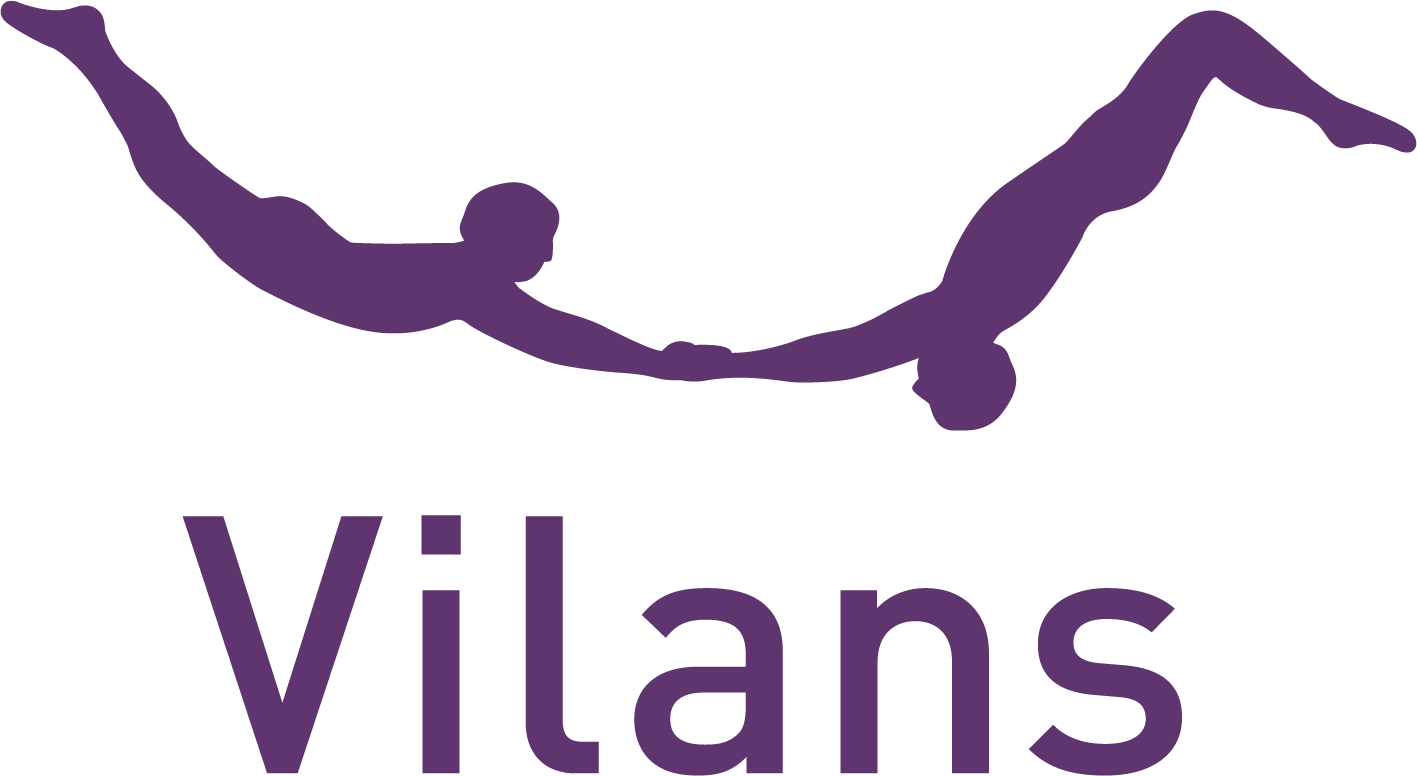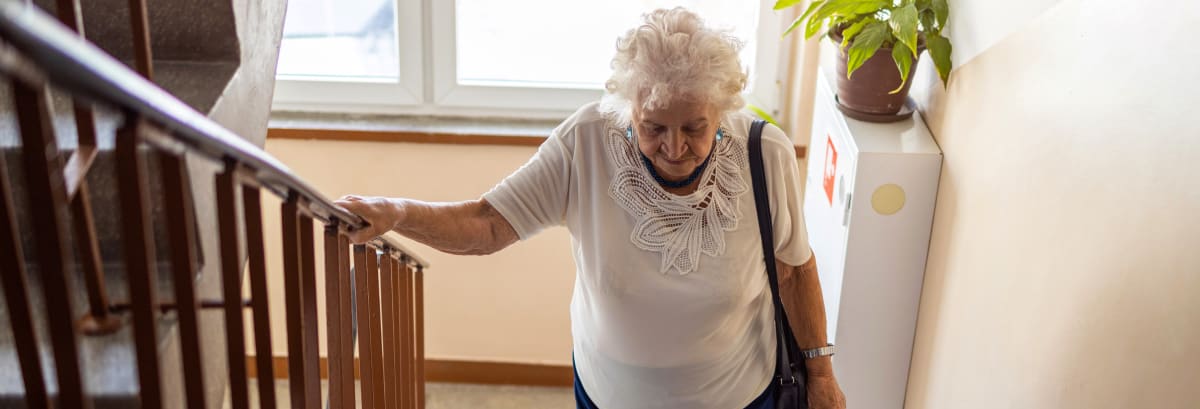Portrait Series on Reablement: Continuing the Life People Once Had
Published on: 31-05-2024
More and more care organizations are adopting the concept of 'reablement' to promote self-reliance, personal control, and autonomy among their residents. But how best can clients be supported in this? And how do care workers adapt to working more with 'hands off'? In this portrait series, we explore how various care organizations are integrating reablement into their practice. In this article, we spoke with an HBO nurse from ZuidOostZorg about her experiences and insights.
Why is it important to stimulate self-reliance?
"I see that people have a more positive outlook on life when they can do things themselves. They see the value in it and feel proud. Clients often tell me this."
What do you encounter in your practice?
"I visited an elderly client who only wanted to sleep in her living room chair. She was angry and somewhat rigid. I often let the client lead the conversation and ask what they want. From a nursing perspective, I asked why she didn't want to sleep in bed, and she explained that her back and tailbone hurt. By talking with her, I found out she didn't find her bed comfortable. I explained and demonstrated the bed's features that might alleviate the problem and suggested trying to sleep in the bed. If it didn't work, she could alert us for help to return to the chair.
"Eventually, the client chose to sleep in the bed. She slept restlessly for three nights but then slept well and reported feeling better. It gave her peace of mind to know she could call for help if she wanted to return to the chair, even in the middle of the night.
"This process didn't take much time, just three 15-minute sessions. My approach includes three elements: Presence - really being there for the client. Motivational interviewing - helping them take steps forward. Encouraging autonomy - the client decides."
"In the client's file, I noted our agreements, so colleagues were aware. Since her son can read this file, he knew what was agreed upon and now encourages his mother to sleep in bed."
What is reablement?
As seniors live longer at home, they want to manage as independently as possible. 'Reablement' has become a popular topic in the Dutch VVT (nursing, care, and home care) sector in recent years. Some view it as old wine in new bottles, while others see it as a wonderful modern development. Regardless, we can agree that promoting autonomy, personal control, and self-reliance among the elderly is a beautiful way to make eldercare more person-centered and life-oriented. That’s precisely what reablement aims to achieve.
Care professionals work with seniors to identify what they want to do themselves again. This is done in home care but increasingly in nursing homes as well. Does the client want to be less dependent on when home care workers visit? Would they like to do their shopping themselves again? Perhaps resume an old hobby? A plan is made, and exercises, aids, and technology are considered to make this possible.
What benefits has the client experienced?
More relaxation, better sleep, and less pain in the back and tailbone. Initially, the client was closed off and angry, saying, "I act grumpy because I can't do anything anymore." Now, we see a kind, friendly woman again. She has more control and feels heard.
What benefits have you experienced?
Ergonomically healthier work for me and my colleagues. A better relationship with the resident, who is less unhappy because she thought she had to give up even more.
What inspires you to promote self-reliance?
"I've always asked the questions that come to mind. I've noticed a fixed pattern: care takes responsibility, and family members or residents expect that. I want to break this pattern.
"When we started working with the principle of reablement, I realized we do a lot. A simple example: a colleague makes a nightly round to wish all residents goodnight. When I asked why she did this, her answer was, 'I always do it.' I think this could be solved differently, for example, by letting the resident call their children before bed. It's common for family members to bring a bag of medication when a client comes to us and say, 'Here, take care of this.' I then wonder: how did you manage this at home?
"Reablement requires talking to the caregiver. Sometimes they need a break, and then we can reassess what the caregiver or relatives can still do themselves. It’s really a collaboration with the client's network."
How do you promote self-reliance?
"I always approach people positively and ask, 'I thought it went well. How did you find it?' I get very different reactions. I sometimes look at people's behavior through the lens of animal behavior and make this distinction:
- There are mice – they are quiet and sideline themselves.
- There are snakes - they try to avoid tasks and want us to help them.
- There are tigers - they don't want to change, see obstacles, and don't yet see the benefits of doing it themselves."
"When people sideline themselves and are quiet (the mice), I say, 'I think you're doing well.' And so I try to take more steps with the resident, giving them confidence. For those who avoid tasks (the snakes), I always ask myself what I do and what I think the client can do. As a team, it’s important to have the same approach and follow through. Otherwise, a resident will always ask the one 'soft' colleague to take over. Then working from reablement won't work, and people won't be encouraged to be self-reliant. For those who don't want to change (the tigers), I say, 'I really think this can work. This is new and something you haven't done before.' An example is offering the Medido to a client: 'We think this can work. We want to try this and think it can start with you.' The result? From calling daily for medication, it went to 'calling if something goes wrong.' And that rarely happens."
"It’s not about seeing it as a competition to make the other person do everything themselves. It's about how someone can be as self-reliant and autonomous as possible. Someone doesn't have to expose themselves (sometimes literally). That can be very pleasant and give someone freedom. I also look at aids that someone can use in addition to the care I provide."
How do you and your team approach self-reliance?
"Celebrate small successes. With my team, we celebrate when we achieve a change goal with a client. We acknowledge that we can be proud it worked. Even if it’s something small, it's significant for a resident. We want to continue this way. We also have our goals and discuss them continuously. We want our clients to be able to do things (continue to do things) for themselves. Always for their well-being."
"Sometimes colleagues mention that it’s faster if they do something themselves rather than letting the client do it. But for us, the question is how we can help this client remain as independent as possible. Often, you invest time first and save time later. We continually reflect on what we do and what we can do."
What tips do you have for colleagues?
- Be constantly aware of what you are doing and consider what the client can do themselves.
- Always ask yourself: what care task can someone (re)do themselves?
- Always ask yourself: did I get my diploma for this? For example: why am I doing the dishes if the client or family can do it?
- Always ask yourself: what am I doing and why am I doing it? Often, you’ll find that you take over many unnecessary tasks.






